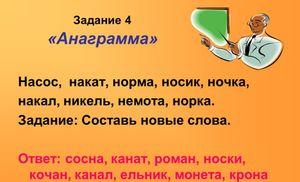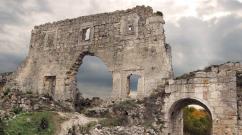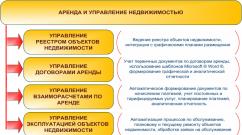Saburov Alexander Nikolaevich - Izhevsk. Alexander Nikolaevich Saburov: biography Creative activity now
Alexander Nikolaevich Saburov is one of the most famous Soviet partisans of the Great Patriotic War. He formed and led a partisan unit that went down in history under his name.
Alexander Saburov was born on August 1, 1908 in the village of Yarushki in Udmurtia (now it is the territory of Izhevsk). The Saburov family had four children - two sons and two daughters. Alexander graduated from school, worked at a construction site for some time, and then - he was not yet 18 years old - he was invited to the position of chairman of the village council of the village of Lenino (now the village of Podshivalovo, Zavyalovsky district).
In 1931, Alexander Saburov was drafted into the army. He left for Ukraine and after finishing his service he never returned to Izhevsk. After the army he worked as chairman of a collective farm, and in 1936 he joined the NKVD. But, in fact, he was never a security officer; he worked as a commissar and, in fact, served in the police. When the war began, Alexander Saburov was an officer and was assigned to command the battalion defending Kyiv.
It's no secret that the war came as a surprise to us. The enemy chose the moment when rearmament was underway in the Red Army. The old weapons were taken away, new ones had not yet been issued, and the Soviet soldiers had one rifle for three. Moreover, the first, most powerful blow fell on Ukraine. The Nazis quickly advanced deep into the country, their forces at the beginning of the war were many times greater than ours.
After the attack by enemy troops, almost nothing was left of the battalion commanded by Alexander Saburov: out of seven hundred fighters, 15 people survived. And there were many such completely defeated battalions in Ukraine. At the same time, the Nazis went far ahead, and the remnants of our troops ended up in their rear. Saburov tried to catch up with his troops retreating to the east, but was unable to cross the front line - it was too well guarded by both armies. Ours were afraid of saboteurs who might sneak in from the enemy; the Germans, naturally, also controlled their rear. As a result, Alexander Saburov decided to remain surrounded and create a partisan detachment. Individuals, small groups that were hiding in the forests, the remnants of battalions defeated by the fascists began to join them. The detachment gradually grew.
The Saburites carried out their first major military operation in early December 1941, defeating the Nazis at the Zernovo station and in the Suzemoki area. There were local residents in the detachment too - who else would know the local forests, paths, shelters so well? However, there were also plenty of traitors among them. Several times it happened that instead of the Ukrainians eager to join the partisans, the Germans were waiting for Saburov at the appointed place.
Already at the beginning of 1942, it became clear that the partisan movement was a force that not only the enemies, but also the command of the Red Army had to reckon with. They attacked the Germans, undermined enemy trains, destroyed garrisons, and blew up bridges. The number of Saburov partisans grew continuously, and by the end of the war reached 6.5 thousand. This small army had its own doctors and nurses, moreover, the fighters even managed to publish their own newspaper called “Partisanskaya Pravda”.
They finally had the opportunity to get out of the encirclement. They gained strength, studied the area and could break through to ours. But then they were faced with another task: to pull back part of the enemy troops from the front line, not to give the Nazis a moment of peace. And they succeeded: the Germans were forced to remove entire divisions from the front, including tank divisions, and send them to destroy partisan detachments.
At the same time, for the first few months, the Saburites did not receive any help from the Soviet troops at all - they obtained medicines, weapons, and supplies for themselves. Only in 1942 did Stalin become aware of what the partisan detachments were doing and what enormous assistance they provided in the fight against the Nazis. Then they were equipped with walkie-talkies, and weapons and ammunition began to be dropped from planes. In the same year, Alexander Saburov was literally “pulled out” by plane from the Ukrainian forests and taken to Moscow to meet with Joseph Vissarionovich. Saburov reported to him about the partisan struggle, and Stalin decided to create a single headquarters that would establish contact with all partisan detachments in the country.
In May 1942, Alexander Nikolaevich was awarded the title of Hero Soviet Union. He proved himself to be a brilliant commander and a skilled strategist. After all, in those years, no one taught future officers how to conduct guerrilla warfare. Everything was built on intuition, on the ability to quickly make decisions, instantly change tactics depending on the circumstances.
Alexander Saburov did everything to ensure that losses were minimal: until he was sure that the sortie would be safe, he would not give the order to go on the offensive. Of course, the Saburites were far from the only partisan unit operating during the Great Patriotic War. However, it is almost certainly the most famous. The merits of the partisan detachment led by Saburov were impressive: during the war years they killed almost 37 thousand German soldiers, wounded 9299, and captured 561 people. 61 garrisons, 97 commandant's offices and administrations were destroyed, 177 trains with enemy soldiers, equipment and ammunition were derailed, 339 locomotives were destroyed, 24 railway bridges and 180 highways were blown up, 3,950 fuel tanks, 746 vehicles, 92 tanks, 62 guns, 99 warehouses The Saburites themselves lost a little more than 270 soldiers killed. From November 1941 to March 1944, the formation under the command of Alexander Saburov fought about 7 thousand kilometers behind enemy lines. The number of participants in the movement grew from 15 fighters to several thousand.
Since 1944, A. Saburov worked as the head of the departments of internal affairs of the Drogobych and Zaporozhye regions, and from 1954 as the head of the Main Directorate of the USSR Ministry of Internal Affairs. Saburov retired with the rank of major general. Awarded two Orders of Lenin, Orders of the Red Banner, Suvorov 2nd degree, Bogdan Khmelnitsky 1st and 2nd degrees, 2 Orders of the Patriotic War 1st degree, Order of the Red Star and medals.
In Udmurtia they remember and honor the famous fellow countryman. The Ministry of Internal Affairs of the Republic pays special attention to perpetuating the memory of a native of Udmurtia, an employee of the internal affairs bodies. Thus, on the initiative of the department, 3 streets were named after Alexander Saburov - in Izhevsk, Mozhga and Zavyalovsky district. 2 schools in the republic are named after the Hero of the Soviet Union - in Mozhga and the village of Pervomaisky, Zavyalovsky district. Employees of the Udmurtia Department of Internal Affairs provide patronage to these schools, conducting patriotic and career guidance events. In addition, in May 2014, on the initiative of the Ministry of Internal Affairs of Udmurtia, a bust of Hero of the Soviet Union Alexander Saburov was unveiled in the central square of the village of Zavyalovo.
Alexander Nikolaevich Saburov was born on August 1, 1908 in the village of Yarushki, Sarapul district, Vyatka province (now Izhevsk, Udmurt Republic). In 1933-1936 he worked as chairman of a collective farm in the village. Polovtsian Berdichevsky district of the Zhitomir region of the Ukrainian SSR.
Since 1936 - political worker in the Red Army.
In 1936-1938 he served in the NKVD, on the eve of the Great Patriotic War - head of the fire department in Kyiv.
Great Patriotic War
In October 1941, he led a Soviet partisan detachment.
From March 1942 to April 1944, he commanded a partisan unit that operated in Sumy, Zhitomir, Volyn, Rivne and other regions of Ukraine, as well as the Bryansk and Oryol regions of Russia and in the southern regions of Belarus.
By personal order of I. Stalin, in 1942 Saburov became a member of the underground Central Committee of the Communist Party of Ukraine (Bolsheviks). Since October 1942 - chief of staff from the leadership of the partisan movement of the Zhitomir region, was a member of the Zhitomir regional committee of the Communist Party (b)U. In the summer of 1944, he headed the NKVD department of the Drohobych region, organized the fight against banditry and Ukrainian nationalists.
In the 1950s, he held senior positions in the internal affairs bodies of the Ukrainian SSR and the USSR.
Deputy of the Supreme Soviet of the USSR in 1948-1958.
Awards
- Hero of the Soviet Union (May 18, 1942)
- Two Orders of Lenin
- Order of the Red Banner
- Order of Suvorov II degree
- Order of Bohdan Khmelnytsky I and II degrees
- Two Orders of the Patriotic War, 1st degree
- Order of the Red Star
- medals
Saburov Alexander Nikolaevich


Alexander Nikolaevich Saburov was born on August 8, 1908 in the village of Yarushki of the former Izhevsk district (now Zavyalovsky district) of the UASSR into a working-class family. Russian.
His working career began at the age of 14. He was an auxiliary worker at construction sites in Izhevsk, a farm manager on a collective farm, and chairman of the village council in the Izhevsk region. From 1931 to 1933 he served in the Red Army. After demobilization, he was promoted to work in the Zhytomyr region of Ukraine. Since 1938 - in the NKVD of the USSR.
On June 25, 1941, he was appointed commissar of the 4th special-purpose battalion of the NKVD troops under the command of state security lieutenant P. A. Dobrychev. The battalion took up positions near the city of Irpen. During the retreat from Kyiv, the battalion was surrounded and was defeated on September 21 during an attempt to break out near the village of Kharkovtsy, leaving six people alive. On October 19, A. Saburov led a partisan detachment created in the village of Podlesnoye from four fighters and five commanders of defeated units of the Red Army. In December 1941, in the Oryol region, he united under his command five partisan detachments with a total number of 151 people.
From March 1942 to April 1944, he commanded a partisan unit that operated in Sumy, Zhitomir, Volyn, Rivne and other regions of Ukraine, as well as the Bryansk and Oryol regions of Russia and in the southern regions of Belarus.
A. Saburov's partisan unit fought 7,000 kilometers behind enemy lines. Partisans from Poland, Czechoslovakia, and Hungary fought as part of the formation. A. N. Saburov was a talented strategist and tactician of partisan warfare. He destroyed more than 36 thousand enemy soldiers and officers, derailed over 350 trains with ammunition and enemy personnel.
By a decree of the Presidium of the Supreme Soviet of the USSR dated May 18, 1942, Alexander Nikolaevich Saburov was awarded the title of Hero of the Soviet Union for his skillful leadership of partisan combat operations behind the lines of the Nazi invaders, personal courage and heroism. He was also awarded the Orders of Lenin, the Red Banner, Suvorov, II degree, Bogdan Khmelnitsky, I and II degrees, two Orders of the Patriotic War, I degree, and the Order of the Red Star.
After the liberation of Ukraine from the Nazi invaders, Major General A. N. Saburov worked in the Ministry of Internal Affairs. He was elected as a deputy of the Supreme Soviet of the USSR for three convocations. Author of the books “Behind the Front Lines” (1955), “Friends Have the Same Roads,” “Innumerable Forces” (1967), “Won Spring” (1968).
Lived in Moscow. On April 15, 1974, Alexander Nikolaevich died. Buried at Novodevichy Cemetery in Moscow.
The name of A. Saburov is immortalized on the Memorial Stele to the Heroes of the Soviet Union at the Eternal Flame in the city of Izhevsk, on a memorial plaque in the house where A. Saburov lived in 1958-1974 in Moscow. The bust was installed in the city of Ovruch, Zhitomir region (Ukraine). In 2014, a monument was erected in the village of Zavyalovo. Streets in the cities of Izhevsk, Zhitomir, Kyiv, Ovruch, and Chernigov are named after the Hero.
- Saburov A. N. Behind the front line: partisan notes. - Izhevsk: Udmurtia, 1981. - 320 p.
- Saburov A. N. Mysterious note: (about the exploits of internationalist partisans). - 2nd ed. - M.: Knowledge, 1990. - 176 p.
- Saburov A. N. Reconquered spring: about the combat path of the partisan unit operating in the Bryansk forests and Right Bank Ukraine / lit. processing I. M. Saburova. - Ustinov: Udmurtia, 1986. - 628 p.
- Alexander Nikolaevich Saburov // My side is Podshivalovskaya. 1957-2002. - Izhevsk, 2002. - P. 38-39.
- Bobylev V.V. Saburovites: essays on partisans. - Izhevsk: Udmurtia, 1978. - 188 p.
- Vichuzhanin A.G. Commander of a partisan unit // The names of our streets: essays about Mozhgin residents / A. G. Vichuzhanin. - Mozhga, 2012. - pp. 62-65.
- Kuznetsov N. S. Saburov Alexander Nikolaevich // Great glory in blessed memory / N. S. Kuznetsov. - Izhevsk, 2012. - P. 305-306.
Alexander Nikolaevich Saburov August 1, 1908 (19080801) April 15, 1974 Place of birth, village of Yarushki, Sarapul district, Vyatka province Place of death Moscow Appropriate ... Wikipedia
- (1908 74) one of the leaders of the partisan movement during the Great Patriotic War, Major General (1943), Hero of the Soviet Union (1942). Commander of the formation in the Oryol and Sumy regions, on the Right Bank of Ukraine... Big Encyclopedic Dictionary
One of the organizers and leaders of the partisan movement in the occupied territory of Ukraine during the Great Patriotic War of 1941–45, Hero of the Soviet Union (18.5.1942),… …
- (1908 1974), one of the leaders of the partisan movement in the Great Patriotic War, Major General (1943), Hero of the Soviet Union (1942). Commander of the formation in the Oryol region (RSFSR), Sumy region, in Right Bank Ukraine. * * * SABUROV… Encyclopedic Dictionary
Wikipedia has articles about other people with this last name, see Saburov. Alexander Petrovich Saburov ... Wikipedia
- ... Wikipedia
Alexander Nikolaevich (1908 74), one of the leaders of the partisan movement in the Great Patriotic War, Major General (1943), Hero of the Soviet Union (1942). Commander of the formation in the Oryol and Sumy regions, on the Right Bank of Ukraine.... ...Russian history
Saburov Russian surname: Saburovs are a noble family. Personalities Saburov, Alexander Saburov, Alexander Ivanovich (1799 1880) captain, Tambov landowner, Decembrist. Saburov, Alexander Matveevich (1800 1831) artist of the Imperial ... Wikipedia
Alexander Nikolaevich, one of the organizers and leaders of the partisan movement in the occupied territory of Ukraine during the Great Patriotic War of 1941 45, Hero... ... Great Soviet Encyclopedia
Alexander Nikolaevich (b. 19.VII (1.VIII).1908) one of the organizers and leaders of the partisans. movements during the years of Vel. Fatherland war 1941 45. Hero of the Soviet Union (18.V.1942). Gene. major. Member Communist party since 1932. Rod. in Izhevsk in the family... ... Soviet historical encyclopedia
Born on August 1, 1908 in the village of Yarushki, now within the city of Izhevsk (Udmurt Republic), into a peasant family. Russian. Graduated from 10th grade. In 1931-1933 he served in the Red Army. Member of the CPSU(b)/CPSU since 1932. After demobilization he was in Soviet and economic work. Since 1938 - in the NKVD of the USSR. During the Great Patriotic War, in the fall of 1941, A.N. Saburov organized a partisan detachment that operated in the territory of Sumy and Bryansk regions. Since March 1942, he headed the partisan unit created on the basis of this detachment. Partisan detachment A.N. Saburov, numbering 1,800 fighters, in the first months of 1942, together with the Bryansk partisans, controlled almost all the villages of Trubchevsky, Suzemsky, Brasovsky, Navlinsky and Vygonichsky districts of the Oryol region (according to the then existing administrative-territorial division), Seredino-Budsky and Khilchitsky districts of the Sumy region. In January 1942, the partisans, having received a message that the enemy was moving new reinforcements on the Bryansk-Pochep railway section, blew up the bridge and derailed three trains with troops and ammunition. By a decree of the Presidium of the Supreme Soviet of the USSR dated May 18, 1942, for skillful leadership of the combat operations of partisans in the rear of the Nazi invaders, personal courage and heroism, Alexander Nikolaevich Saburov was awarded the title of Hero of the Soviet Union with the Order of Lenin and the Gold Star medal (No. 706) . From May 1942 to February 1944 - commander of the Zhitomir partisan unit. Since September 1942, A.N. Saburov is a member of the underground Central Committee of the Communist Party (Bolsheviks) of Ukraine. Since November 1942 - chief of staff of the partisan movement in the Zhitomir region of the Ukrainian SSR. During this period, he paid a lot of attention to the creation of partisan detachments, supplying them with weapons, ammunition, mine-explosive equipment, medicines and others. In 1943 A.N. Saburov was awarded the military rank of "Major General". From August 31, 1944 to March 16, 1951 - head of the NKVD - Ministry of Internal Affairs of the Ukrainian SSR for the Drohobych region. From March 16, 1951 to April 4, 1953 - Head of the Department of the Ministry of Internal Affairs of the Ukrainian SSR for the Zaporozhye Region. In 1953-1954 - Head of the Directorate of the Local Air Defense Service of the Ministry of Internal Affairs of the Ukrainian SSR. From December 4, 1954 to July 20, 1957 - Head of the Main Fire Department of the USSR Ministry of Internal Affairs. He was elected as a deputy of the Supreme Soviet of the USSR of the 2nd-4th convocations. Lived in Moscow. Died April 15, 1974. He was buried at the Novodevichy cemetery in Moscow (section 4). Awarded 2 Orders of Lenin, Order of the Red Banner, Order of Suvorov 2nd degree, Bogdan Khmelnitsky 1st (01/04/1944) and 2nd degrees, 2 Orders of the Patriotic War 1st degree, Order of the Red Star, medals. Streets in the cities of Zhitomir, Kyiv, Ovruch in the Zhitomir region, and Chernigov are named after the Hero. In Moscow, a memorial plaque was installed on the house in which A.N. Saburov lived. In the city of Ovruch, Zhytomyr region (Ukraine), a bust of the Hero was erected.
Correspondence between father and son.
City N., December 31. (Phone from own correspondent) Greets you joyfully New Year family of the oldest production worker at metallurgical plant No. 71 of the People's Commissariat of Armaments of the USSR Nikolai Fedorovich Saburov. The steelmaking shop, where Nikolai Fedorovich has been working since 1905, completed the annual program ahead of schedule and gave the country more than 2,000 tons of steel above the plan.
Nikolai Fedorovich Saburov wrote about the success of his workshop in a New Year’s letter to his son, Hero of the Soviet Union, Major General Alexander Nikolaevich Saburov.
In a conversation with Izvestia correspondent N.F. Saburov said:
My son was the chairman of the village council until 1930. During the Patriotic War, he spent more than three years behind enemy lines and commanded a partisan unit in Ukraine. His military achievements are highly appreciated by the government. I am proud of my son and try to help the Red Army defeat the hated enemy. Despite my advanced age, I remain in production, working in the charge yard. The fact that the workshop completed the annual task ahead of schedule is also due to us, the charge workers. In the coming 1945, we will try to ensure that our site takes the lead in the intra-factory socialist competition.













